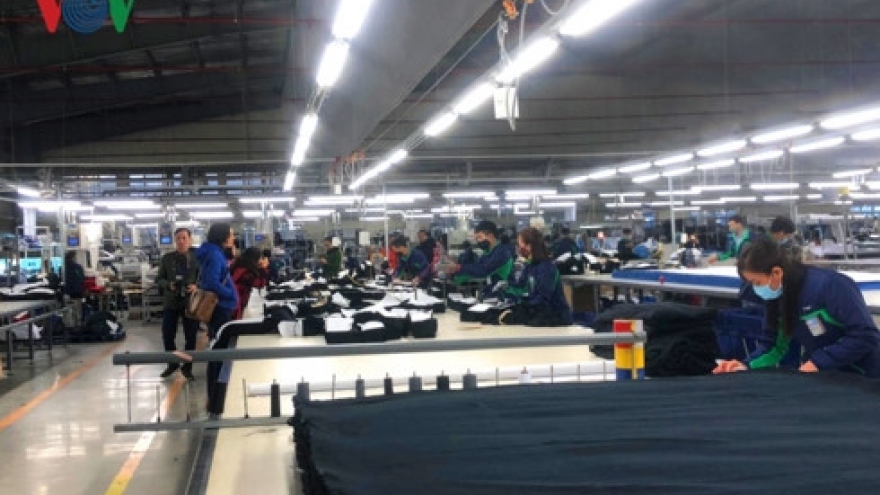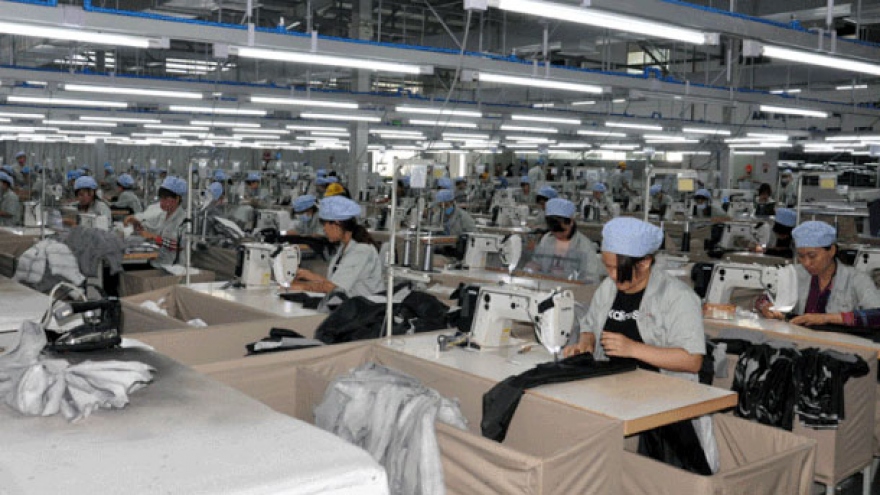Experts warn of challenges to economic growth in 2019
VOV.VN - Vietnam’s economic growth in 2019 could struggle to enjoy the same pace that it did in 2018 while experts have warned inflation this year, pressed by a tightened fiscal policy, is forecast to be higher than the rate seen last year.
 |
| Assoc. Prof. Dr. To Trung Thanh from National Economics University. |
Assoc. Prof. Dr. To Trung Thanh from the NEU asserted at a recent economic growth - themed workshop that Vietnam could make the most of the world’s economic developments.
He noted that ongoing trade tensions between the United States and China, followed by tit-for-tat tariffs, have raised the price of Chinese goods shipped to the US market. Hence, he cited the trade war as a facilitating factor that could potentially help Vietnamese firms deepen their penetration into the US market.
Additionally, the flow of global investment could see a shift away from China towards other countries, including Vietnam, Thanh said. He voiced his belief that local sectors, especially those manufacturing similar products to the Chinese goods currently hit by US tariffs, could benefit from the investment shift.
New - generation trade deals such as the EU-Vietnam Free Trade Agreement (EVFTA) and the Comprehensive and Progressive Agreement for Trans-Pacific Partnership (CPTPP) would enable Vietnam to enlarge its export markets and bring forward the positive impacts on bilateral and multilateral trade between Vietnam and the signatories.
Despite such positives, Thanh claimed that the Vietnamese economy is likely to face an array of imminent challenges.
He pointed out a number of concerning factors, including adverse consequences emerging from some of the world’s unexpected economic fluctuations, bureaucratic difficulties caused by local economic institutions, a slow pace of improvement in the local business climate, and the modest performance of the private sector.
Meanwhile, the increasing supply of money and rising credit growth could lead to a high risk of soaring inflation, whilst simultaneously bad debt and capital adequacy ratio (CAR) remain at a standstill.
“Increasing the budget deficit and public debt are pressing the country to tighten its fiscal policy, potentially forcing local enterprises to meet a high risk of rises in taxes, costs, and hampering efforts to improve the business environment,” Thanh warned.
 |
| Sebastian Eckardt, the World Bank’s lead economist for Vietnam. |
Sebastian Eckardt, the World Bank’s lead economist for Vietnam, said that despite improvements in the local fiscal situation, increasing debts could trigger more risks to future growth and stability of the Vietnamese economy.
Eckardt raised concerns that the strengthened fiscal situation could put pressures on government spending which accounts for a large proportion of the country’s annual GDP value.
The WB expert noted that public finances would remain tight due to soaring salaries for public servants. He added that the Vietnamese government’s total public sector salary remains higher than in regional neighbors, nearly doubling the rates of Indonesia and the Republic of Korea and tripling that of Singapore.
In order to overcome these challenges, the government should enhance the issuance and implementation of supply-side policies as well as attach more importance to the development of the private sector, Thanh from the NEU said.
The private sector should be regarded as not only a significant aspect, but as a pillar to economic growth as well, he suggested. He went on to say that the sector is expected to result in breakthroughs in economic development in line with development trends from extensive economic integration.
He also called for changes to be made to existing incentives for foreign invested enterprises while stressing amendments to easygoing tax exemptions which many provinces used to lure FDI inflows in the past.
The country should improve its economic resilience in the face of negative external fluctuations while making concerted efforts to ease tax collection pressures and stabilize budget collection, the NEU lecturer recommended.



